Publications
Articles, publications, books, tools and multimedia features from the U.S. Institute of Peace provide the latest news, analysis, research findings, practitioner guides and reports, all related to the conflict zones and issues that are at the center of the Institute’s work to prevent and reduce violent conflict.
Question And Answer
Amid a Changing Global Order, NATO Looks East
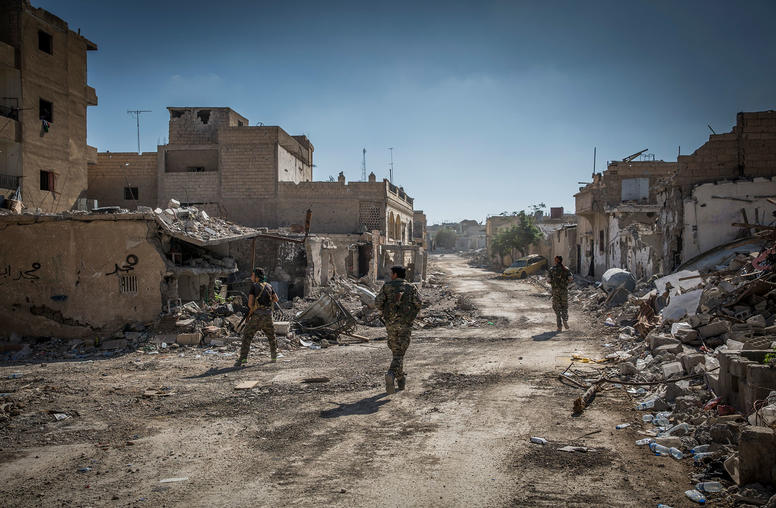
A New U.S. Strategy Will Keep American Troops in Syria
Secretary of State Rex Tillerson has outlined a new Syria strategy for the Trump administration that includes an extended U.S. troop presence. Tillerson spoke days after Turkey, a NATO ally, denounced a U.S. plan to create a Border Security Force in Syria composed heavily of ethnic Kurds. Mona Yacoubian, a longtime analyst and policy specialist on Syria and the Middle East, discusses the implications of these developments.
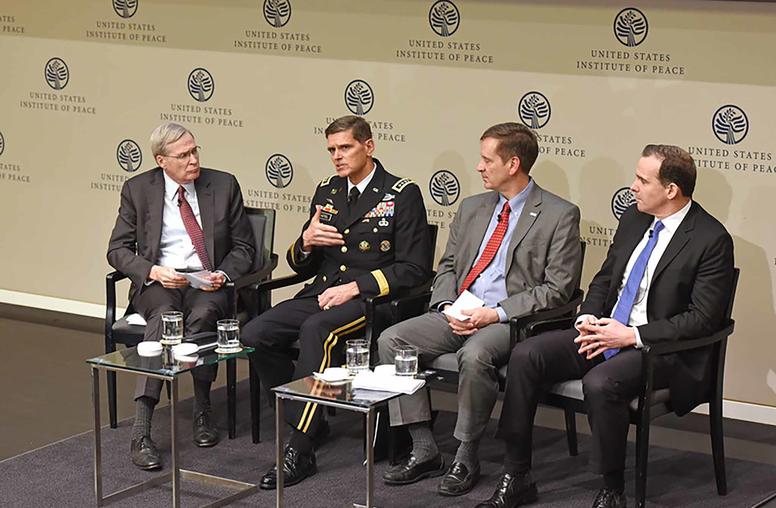
Tilting Iraq and Syria Toward Stability—and Away From ISIS
With last year’s military rollback of the ISIS-declared caliphate, U.S. security and Middle Eastern stability require some way to establish governance in Iraq and Syria that meets the needs of their peoples, according to U.S. administration and military leaders, Iraqi officials and regional experts speaking on April 3 at USIP. During a day-long examination of strategy to stabilize the region and prevent a revival of ISIS, U.S. special presidential envoy Brett McGurk said President Trump’s March 30 order to freeze spending on post-combat recovery efforts in Syria “is not hampering our work in the field.”
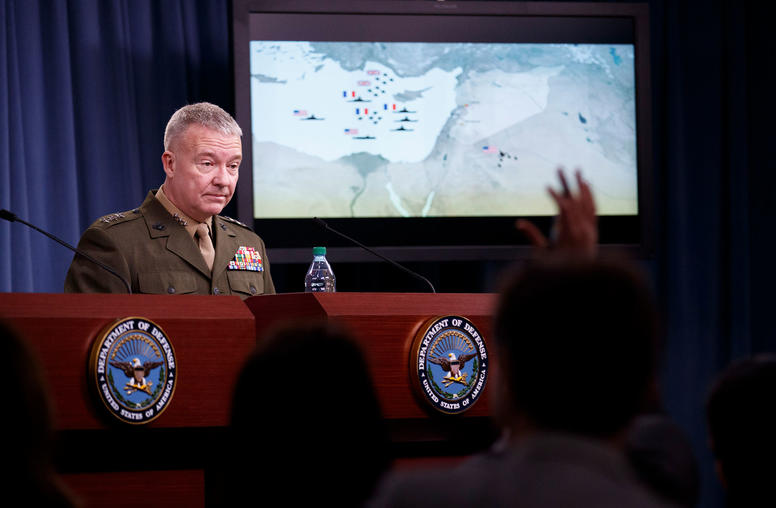
Q&A: After Airstrikes, What’s Next for the U.S. in Syria?
On Friday evening, the United States, together with Britain and France, launched a joint military operation in response to the Syrian regime’s April 7 chemical weapons attack on Douma. The Douma attack left more than 40 civilians dead and several hundred experiencing symptoms of exposure to toxic chemicals. The coordinated airstrikes hit three targets associated with Syria’s chemical weapons infrastructure: a scientific research center, a chemical weapons production facility, and a chemical weapons storage area. Around this time last year in April 2017, the Trump administration launched a unilateral cruise missile strike on the Shayrat airfield following a sarin attack by the Syrian regime on the town of Khan Shaykhoun, which killed more than 90 civilians. U.S. Institute of Peace Senior Advisor for Syria Mona Yacoubian provides some insight into the airstrikes and the challenges that lie ahead.
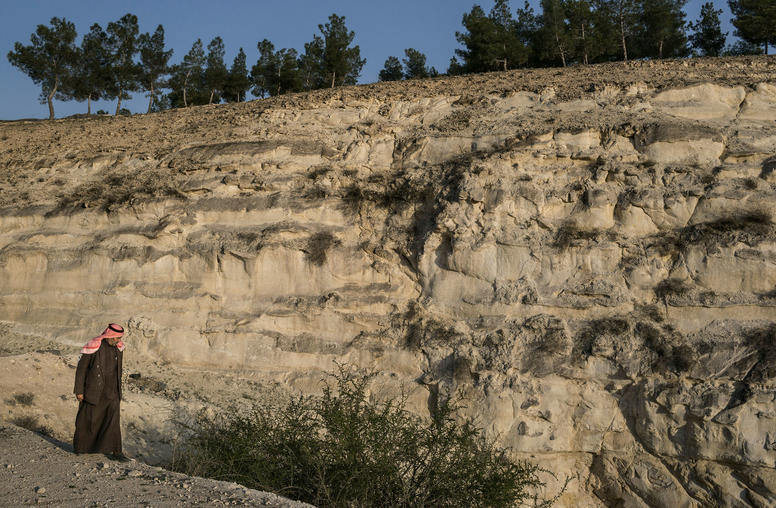
What is Next for U.S.-Turkey Relations?
Relations between the United States and Turkey have come under increasing strain in the past two years over the U.S. role in Syria and Ankara’s strengthening ties with Russia. American support for Kurdish forces battling ISIS has angered Turkey, which sees the cooperation as bolstering Kurdish nationalist elements inside its borders. USIP Board member Eric Edelman, a former U.S. ambassador to Turkey during the George W. Bush administration, and USIP International Advisory Council member Jake Sullivan, who served as Vice President Joe Biden’s national security adviser, provide some insight on the state of Turkish-American relations.
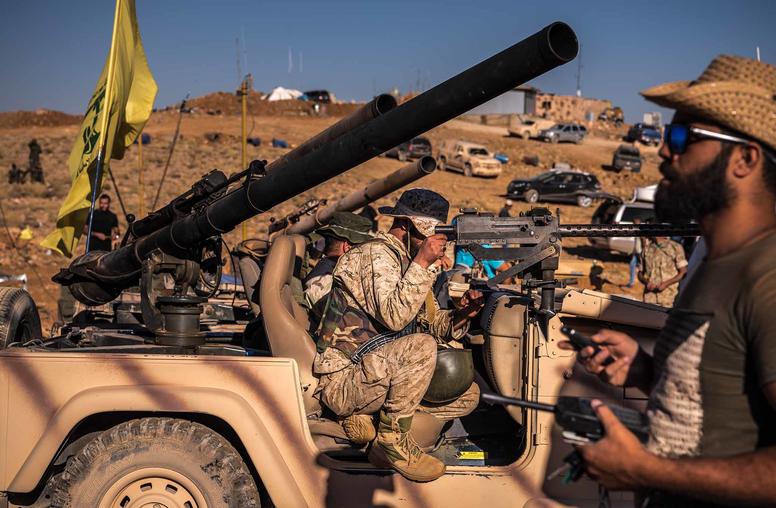
Iran and Israel Are Racing Toward Confrontation in Syria
Ties between Tehran and Damascus have been close since the 1979 revolution, but the relationship deepened after Syria’s civil war erupted in 2011. With the Assad regime’s survival at stake, Tehran doubled down on its support, providing critical military assistance—fighters and strategists—and economic aid estimated to be in the hundreds of millions of dollars.
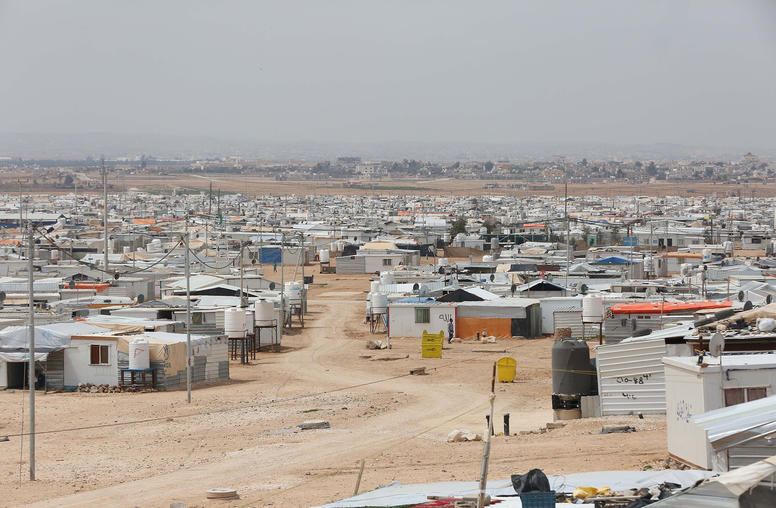
Regime Offensive Aims to Retake Southwest Syria, Displaces Thousands
Over the past two weeks, the Syrian government has embarked on a military offensive across Syria’s southwest, focused on retaking the city of Dara’a. Russia has played a critical role, backing the operations with airstrikes. The United Nations estimates that at least 160,000 Syrian civilians have been displaced by the fighting, and the number could increase as the battle intensifies.
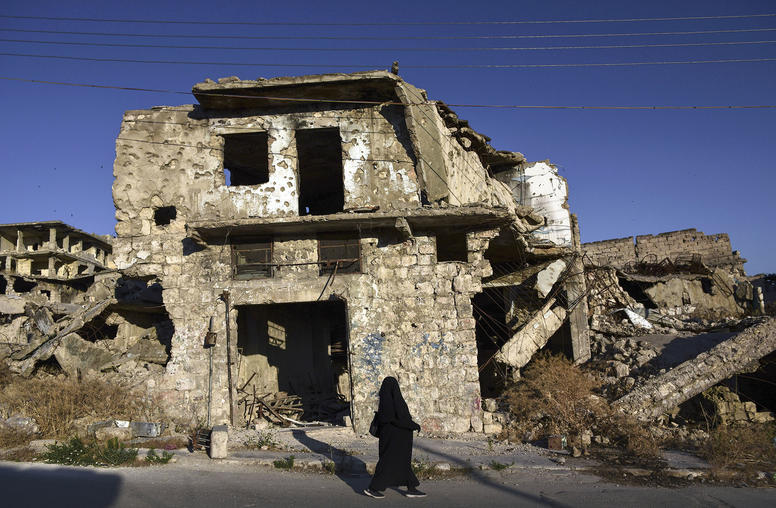
The U.S. ‘Cannot Avoid or Ignore’ the War in Syria
A new, congressionally mandated study on Syria policy urges the United States to maintain a military presence and sanctions pressure against the Assad regime, and to help build alternative governance in areas beyond the regime’s rule. The bipartisan Syria Study Group, appointed by Congress, stresses that ISIS in Syria remains a potent threat to the region and to U.S. national security. The Syria Study Group discussed its report at USIP, which at Congress’ direction facilitated the group’s work.
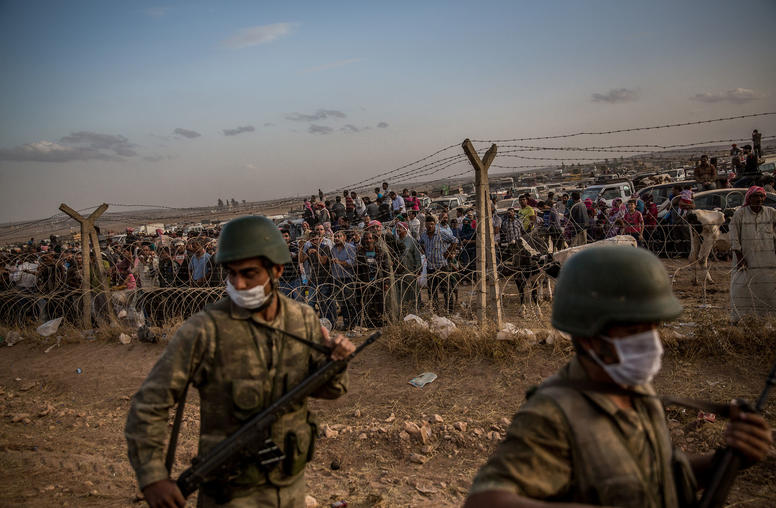
In Syria, Russian-Turkish Deal is a Game Changer on the Ground
A chain reaction of events over the past two weeks in Syria have effectively reordered the conflict’s balance of power. Russia has emerged as the key power broker in Syria. Meanwhile, both the Assad regime and Turkey have achieved important gains, while the Kurds have suffered a significant loss. A 10-point deal negotiated between Russia and Turkey—if implemented successfully—will fulfill Turkey’s long-held demand that Kurdish forces be pushed approximately 20 miles off the Syrian-Turkish border. Following a U.S. decision to withdraw the majority of its forces from Syria, the deal also cedes control over significant portions of northeast Syria to the Assad regime and Russia. USIP’s Mona Yacoubian looks at the elements of the Russian-Turkish deal and its implications for Syria and the broader region.
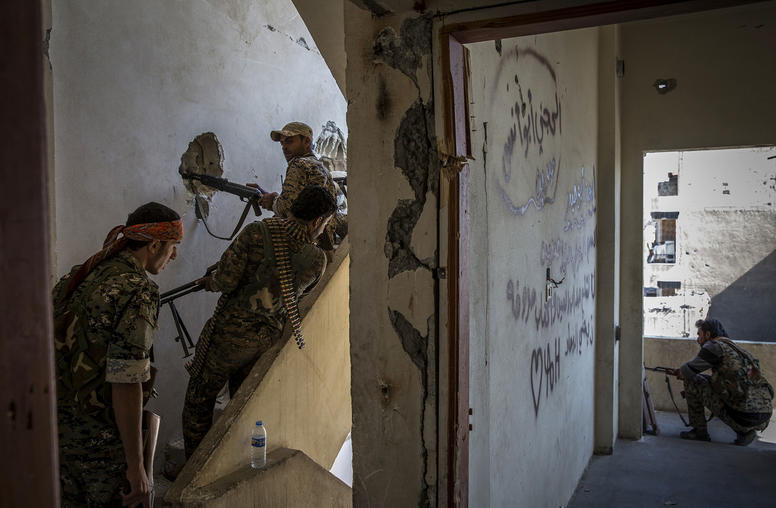
A Month After U.S. Withdrawal, What is the State of Play in Syria?
In the month since President Trump’s October 6 phone call with Turkish President Erdogan and the announced U.S. withdrawal from northeast Syria, the picture on the ground has changed immensely. Moscow has emerged as the key power broker in Syria. The Kurds, looking for protection from Turkish forces, are in Russian-brokered talks with the Assad government. These discussions could pave the way for an expanded Syrian government presence in the northeast for the first time in years. Successive agreements with Turkey negotiated first by the United States (October 17) and then by Russia (October 22) to halt Ankara’s fighting with the Kurds have been marred by violations.
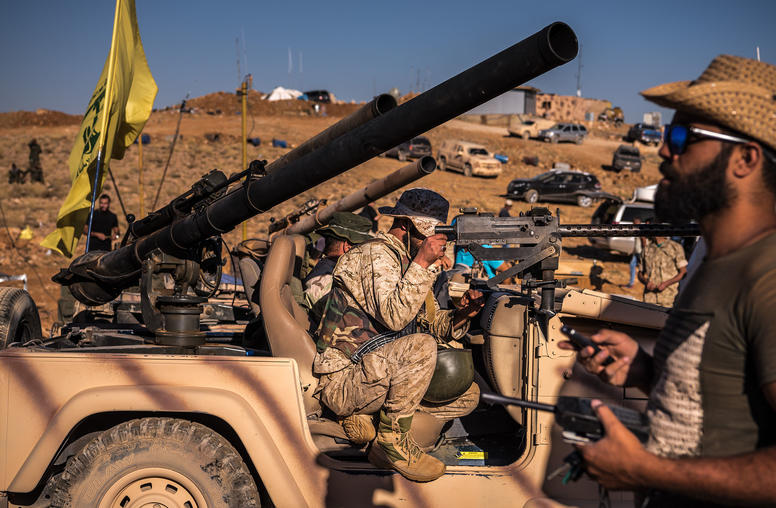
How the Soleimani Strike Impacts Syria and the Fight Against ISIS
Slain Iranian Quds Force commander Qassem Soleimani played a considerable role in conflicts across the Middle East. In Syria, he mobilized Shia armed groups from across the region and coordinated closely with Hezbollah to save the Assad regime. His death by an American airstrike leaves many to wonder what’s next for Iran in Syria. It has also stirred fear of a direct confrontation between Washington and Tehran at a time when concerns about an ISIS resurgence in both Iraq and Syria are already on the rise. USIP’s Mona Yacoubian looks at what, if any change, Soleimani’s death will mean for the Assad regime and what’s next in the fight against ISIS.